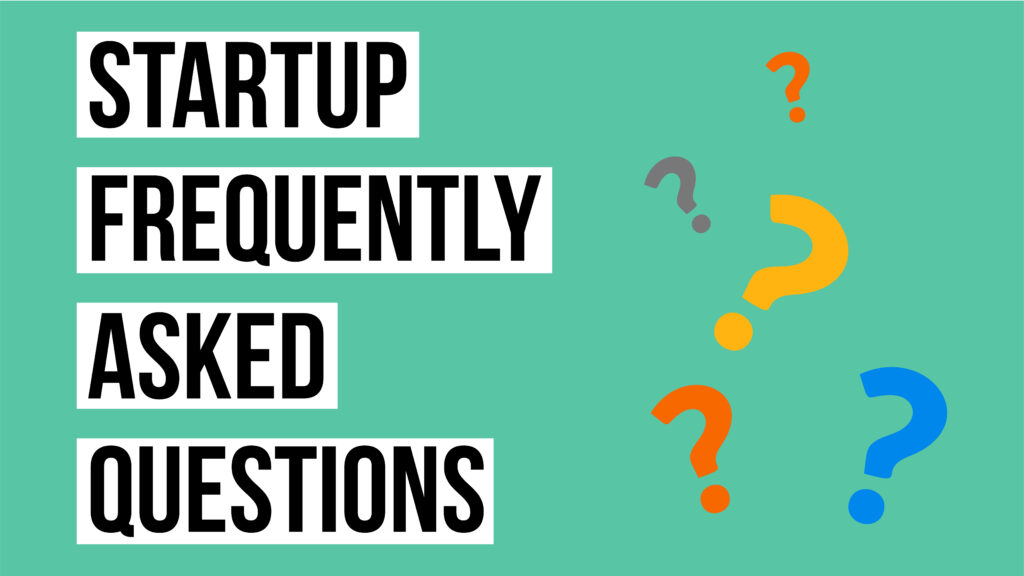Question and Answer for Startups Part 2

When we talk about Intellectual Property, we talk about more than just ideas and thoughts. Due to a bare minimum education on the subject, a lot of people do not have a clarity about what IP really is.
This blog will be a continuation of the previous blog as I will be answering 5 more Frequently Asked Questions about IPR asked by startups.
The next 5 FAQs are as follows:
6.Should the patents be after the startup’s name or the founder or director’s name?
This is one of the most frequently asked questions by startups. If you are a startup owner, my suggestion to you would be to get the patent after startup’s name and not yours and your co-owner’s, if any. This is simply because when you go for fundraising for your startup, the patents after its name are going to add up to its valuation, increasing its worth in the market.
Another reason why you should prefer naming the patents after your company is that if in case the owners split in future, the patents under the company’s name will remain unharmed. However, if the patents were under the founders’ names, the company will have to go through a huge loss when the founders will split.
7.Does having a granted patent mean having the freedom to operate?
Just because you have a granted patent, it does not necessarily mean that you have freedom to operate. Patentability and freedom to operate are distinct concepts.
As a simple example, assume that A invented the bicycle and obtained a patent for it. Shortly afterwards, B invents a bicycle with gears and obtains a patent for it because a bicycle with gears is deemed novel and inventive over a bicycle without gears. However, B’s bicycle with gears falls within the scope of the claims of A’s patent (which covers a bicycle whether or not it has gears). So, B does not have freedom to operate for the bicycle with gears, despite the fact that B’s bicycle is patentable over A’s bicycle. If B were to sell their bicycle with gears, they would infringe A’s patent. In summary: B’s bicycle with gears is patentable over A’s bicycle, but B does not have freedom to operate over A’s patent.
8.Is patent publication the first step for the grant process?
Another very common question that is asked not only by startups but also inventors and individuals, is that whether patent publication can be helpful in granting a patent.
The answer is no. The patent isn’t even examined by the time of patent publication. Patent publication occurs automatically after 18 months of patent filing. The examination doesn’t occur by this time. After patent publication, the examination begins then follows the grant process. Therefore, granting of patents is completely different from publication. Publication is done simply to bring the news about the patent in the public eye, so that the public can read it and if they have any objection against the invention they may bring it forward.
Hence, the first step of granting a patent is not patent publishing but the examination of patent by a patent examiner and the issuing of the first examination report.
9.Can I launch my product or process in the market without a patent?
The answer to this is extremely simple. Patent is a completely different concept from operating or running a business. If the product or process you are willing to launch in the market is patentable or fulfills the criteria of patents, then you must get it patented before launching it in the market. But if the product or process does not meet the patentability criteria, then you are free to launch it without getting a patent.
But as an expert, I would suggest that you must firstly get a patentability check done on your innovation. Secondly, even if your innovation cannot be patented, there could be other IP Rights to protect it. You must consult an IP attorney to gain information on the same.
10.How does government support startups in filing patents?
I have made a complete YouTube video on SIPP Schemes by government, where I have shared about the ways government provides facilitation to startups. This video will provide the information that you are seeking.
But to explain in short, there’s an 80% fee reduction for a startup that has a certificate of Startup India, help is provided in expedite process, an IP facilitator is also provided to you without any extra fee.
So, these were all the Frequently Asked Questions in the domain of IP and how to go with the process of filing patents.